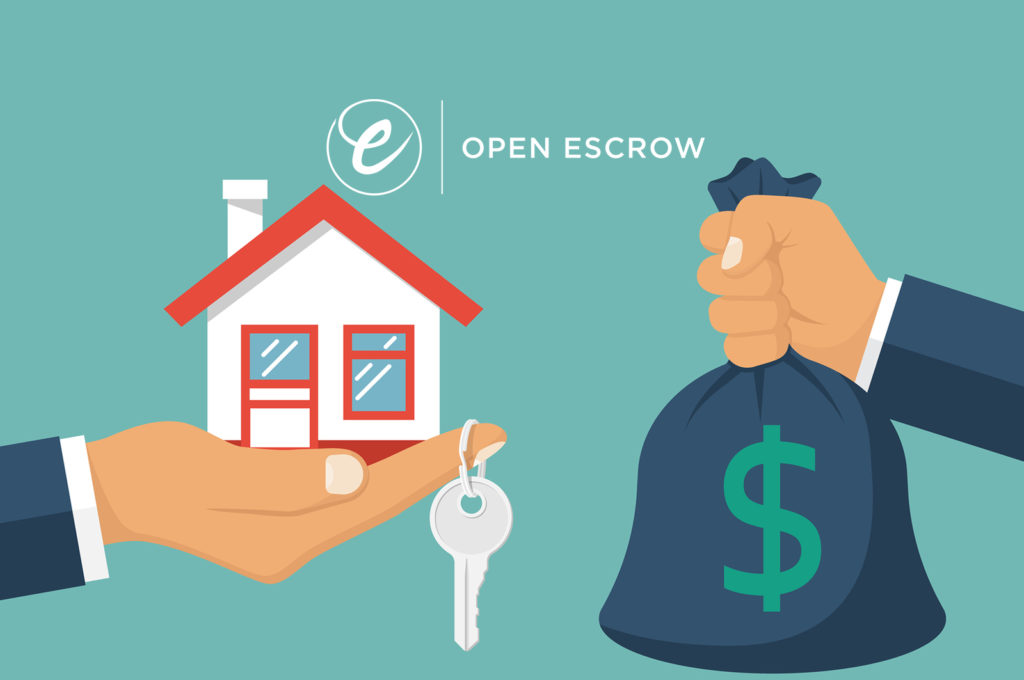Do you have to use escrow when selling a home?
A common question asked by many first time home sellers in California.
Here’s an explanation of California and federal laws regarding requirements to use an escrow process when selling a home.
California Law – Escrow Required When Selling Homes?
The quick answer is “No”. However, after finding a buyer the process of selling your home involves tricky situations. It begins with the initial deposit from the buyer called an “Earnest Money”.
The reason why it’s called an “earnest money” evolves from showing the seller the buyer’s seriousness about purchasing the home. But, in return, the buyer needs assurances that the seller won’t cash the check and abscond with the deposit.
Escrow provides a solution to the risks of handing over a check (or cash) to a seller who cashes the check and runs. While not legally required in California, escrow is the norm.
Do Federal Laws Require Using Escrow for a Home Purchase?
The answer is “No”. There are no federal laws requiring the use of an escrow process when buying a house in the United States.
However as explained below, certain types of mortgage loans require the escrow process to purchase a home.
What Escrow Accomplishes
Home sales don’t happen overnight. After accepting the buyer’s offer and signing a purchase agreement the earnest money check normally goes to a neutral third party acting as an escrow agent. Also, called an “escrow officer”. Numerous escrow companies operate throughout California.
The escrow officer receives the earnest money check and deposits it into a bank or financial institution escrow account. The signed purchase agreement provides all of the terms and conditions for the title of the home to pass from the seller to the buyer.
Once fulfilling all conditions, the escrow officer uses the earnest money and the balance owed from the buyer or from the buyer’s lender to pay the seller. Finally, the escrow officer files a title deed with the county or municipal recording office immediately transferring title to the buyer.
The escrow process ensures protection for all parties to the purchase (buyer, seller, and lender).
California Licensing Laws
While not requiring escrow under California law, the state enacted escrow licensing laws to protect the public. California licenses escrow agents, but not title insurance companies and banks who also offer escrow services.
The California Bureau of Real Estate sets high standards for licensed escrow officers. For instance, escrow officers prohibited from accepting “kickbacks” or any financial incentives with the transaction. In addition, escrow officers also prohibited from paying any type of kickback or financial incentives to brokers, buyers, lenders, or mortgage companies to steer business to the escrow officer’s company.
Escrow fees are not set by law. This leaves room for negotiating the fee before commencing the escrow process. Typically, the seller and buyer divide the escrow fees as both benefits from the escrow process.
Buyer’s Mortgage Company Requires Escrow
Unless your buyer pays all cash, the buyer’s mortgage lender may require escrow.
The sale of your home not only depends upon the buyer agreeing to its value, but the mortgage lender must also approve. The way a mortgage lender approves is with a formal appraisal of your property. An appraisal involves a professional appraiser to inspect your home and place a dollar figure on its value. The appraiser determines value by comparing similar recently sold homes prices.
Buyer’s Escrow Account
This is a good time to explain another type of escrow called the “Buyer’s Escrow Account”. That’s because when you sell your home you will probably purchase a replacement primary home in the near future.
Realtor Magazine published by The National Association of Realtors (NAR) in an article titled “Escrow Accounts: What Home Buyers Need to Know” explains escrow accounts.
When using a mortgage to purchase a home, the lender normally requires an escrow account. Especially if the down payment is less than 20 percent. In addition, loans insured and guaranteed by the Federal Housing Administration (FHA), require an escrow account.
The buyer’s escrow account opens after the buyer obtains title to the home. Also known as an “impound” account or “reserves”. This account guarantees sufficient funds to pay for the mortgage monthly principal and interest. In addition, mortgage lenders pay the property tax and the homeowner’s insurance out of this escrow account funded by the buyer. Basically, one-twelfth of the estimated yearly insurance and taxes are collected every month.
The reason for a buyer’s escrow account is because the property becomes collateral for the mortgage. As such, the lender needs assurances that the property is adequately insured to pay for any damages or destruction requiring repairs or replacement. In addition, the lender needs to prevent a property tax lien being levied on the property if the buyer fails to pay the taxes.
Conclusion
Do you have to use escrow when selling a home?
As you read here, neither federal nor California laws require using an escrow process for the purchase or sale of a home.
Yet, expect the buyer’s mortgage lender to require escrow.
Nevertheless, using escrow protects the buyer, seller, and lender. You, as the seller, receive protection from a scam by a fake buyer or a counterfeit earnest money check. In addition, escrow guarantees you’re getting paid in full before you pass title of the home to the buyer.
Likewise, the buyer receives protection from sellers who take their money and disappear. The same goes for the buyer’s lender who knows that the funds go to the seller only after all conditions of the purchase contract occur.
After you sell your home and buy another one, a different escrow occurs to protect mortgage lenders. This buyer’s escrow account pays for the mortgage principal, interests, the homeowner’s insurance, and property taxes.
Contact Us for professional escrow services provided in the greater San Diego area and California.
Steven Rich, MBA – Guest Blogger
HAVE ANY QUESTIONS?
Let us know, we love to help:
Call: 858-225-4299
or Click: www.OpenEscrowNow.com/submit
Open Escrow – California Escrow Company


